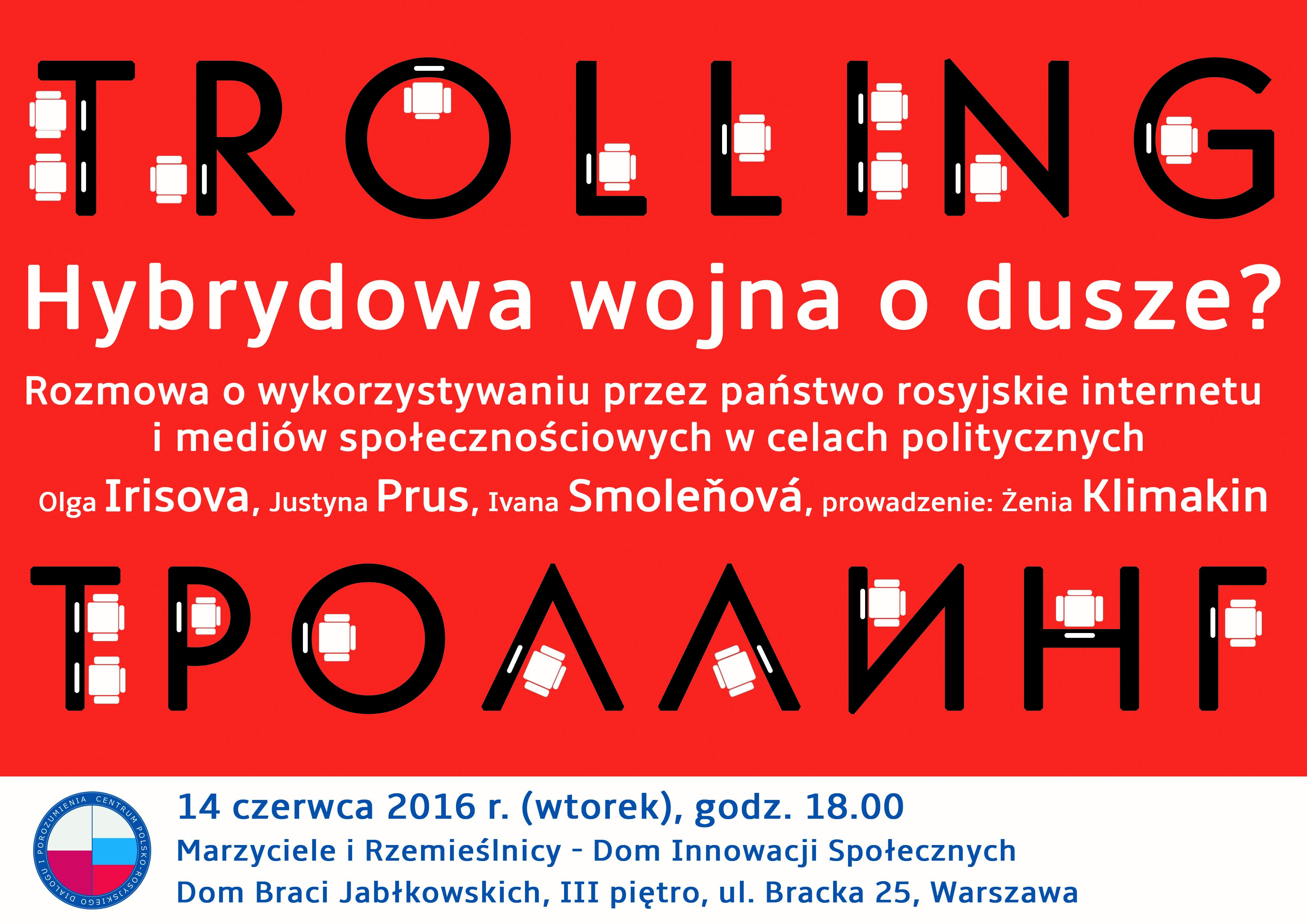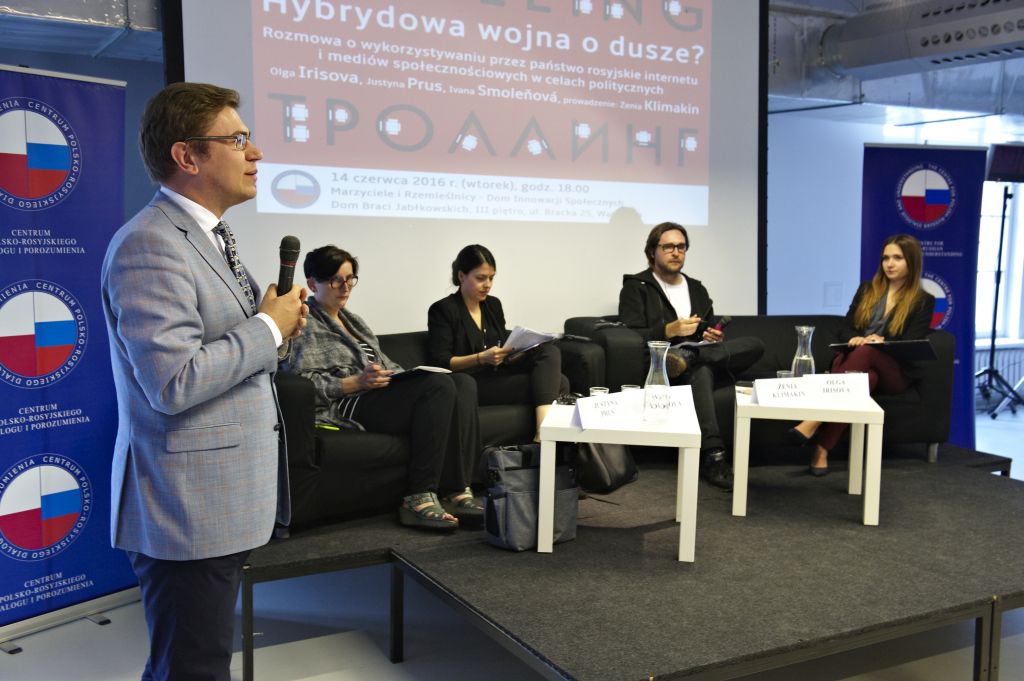A hybrid war over souls? Debate on the use of the Internet and social media for political purposes by the Russian state.
The debate was devoted to the pro-Russian trolling and other disinformation activities aimed at discrediting the Russian democrats and those advocating a normative approach to politics towards Russia. The participants talked about Russia’s approach to this issue, as well as Ukraine’s and the Central Europe countries’. They disclosed the mechanisms of influence on the public opinion used by trolls and indicated the most important recipients of their message.

Olga Irisova talked about the activities of "troll factories" and their financing. She believes that Russian leaders are constantly financing the four Russian "factories". She also described the process of employing a person whose job is to post comments online or write blog entries, aimed at discrediting the pro-democratic opposition and (at the same time) promoting President Putin's policy. Recruitment for the "troll factories" takes place mainly on the Internet, and the salary varies between 600€ and 1000€.
Ivana Smolenova drew attention to the fact that trolling has a unique character in each of the countries in which it exists. She pointed out that the Czech Republic and Slovakia became a new field for the Kremlin's disinformation, taking into account the Euro-skepticism of both countries. In the case of France or Germany, the main goal is to incite animosity towards immigrants and Islam. She also mentioned that trolling is ineffective in Scandinavian countries.
Justyna Prus mentioned that in Poland trolls are mainly focused on subjects connected to Ukraine, and most of all the issue of the Massacres of Poles in Volhynia and Eastern Galicia in the years 1943-1945, which still heavily burdens the relations between Poland and Ukraine. She also showed four main ways of trolls’ activity, the so-called 4D – dismiss, distort, distract, dismay. In addition, she indicated the methods to fight trolling:
- communication and cooperation at the state level
- reaching a Russian-speaking recipient
- regulating legal matters regarding hate speech
- law enforcement in case of law violation
- conducting a process of raising awareness about the phenomenon and the possibilities of fighting it.
Here you can watch a video of the debate in both Polish and English versions:
fot. Andrzej Gałązka
